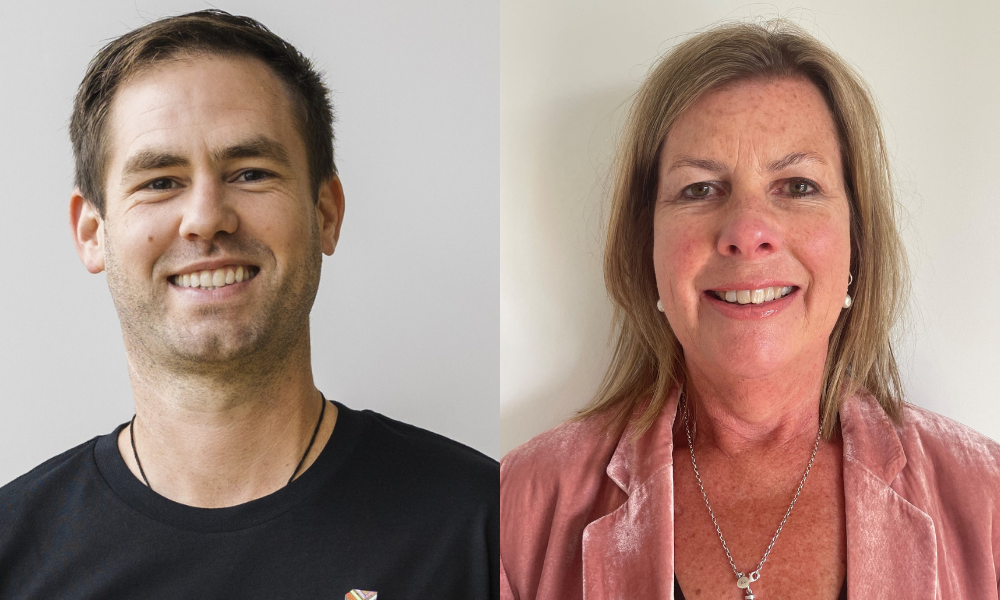
Kiwibank leader says sustainability ‘energizing,’ generates buy-in from staff

According to a recent survey, employees report their employers aren’t doing enough in terms of sustainability. Only 27% believe their employers are going over and above to protect the environment.
The results showed commitment to environmental protection is a priority especially to younger employees, with 32% of those under the age of 25 saying their organisation’s environmental efforts are ‘very important’ to them, found the survey of nearly 1,000 respondents by Frog Recruitment.
One organisation that’s been on a long-term mission in terms of sustainability is Kiwibank. Its strategy extends wider than green initiatives, according to Tom Williams, head of sustainable finance and acting head of sustainability and purpose - and this is having an impact on recruitment and retention.
“Sustainability for us is the full spectrum. It's thinking about social sustainability, environmental sustainability, and we also even look at sustainability in terms of governance, and how we as an organisation are set up to be sustainable.”
Sustainability generates incredible buy-in from staff
Kiwibank’s formal sustainability framework began in 2018, says Williams.
“We've been on a journey for a number of years to reduce our emissions as a business, so 100% of our fleet will soon be EVs; we've reduced our waste and we've reduced electricity consumption as much as possible.
“That's really important, but we also think about where we can have our greatest impact as a bank, and that is also through the social lens because we are a lender, so making sure our customers and our staff are becoming more financially secure and enabling that social sustainability is really powerful.”
Sustainability is an area that generates incredible buy-in from staff and which creates a level of excitement that’s “energizing”, says Williams.
“If you ask anyone at Kiwibank, they like to say the thing that makes us different is being a purpose-focused organisation with sustainably at the core. That sets us apart from not just other banks, but many businesses, and not just in New Zealand but around the world.”
Sustainability key part of EVP
These efforts have led the bank to achieve B Corp certification, which measures a company’s entire social and environmental impact, something Kiwibank’s EVP lead Mary Miles recognises has become attractive to future talent.
“Sustainability relates very strongly to our purpose of making Kiwi better off. So a lot of candidates talk about our B Corp certification when they come in for interviews, and that's really important for people when they're considering Kiwibank as an employer. As part of our purpose ‘Kiwi making Kiwi better off,’ that’s where the stainability story plays a part in the recruitment journey and getting people on board, and plays a key part in our EVP.”
Currently at Kiwibank, voluntary turnover is less than 12%, says Miles, which is a low level they’re proud to have achieved.
“Part of that sustainability story is we run a culture survey every year and we’ve increased our engagement by eight points on our Glint survey, which puts us in the top 25% of companies globally. And a big part of that is engagement because of our strong purpose, and part of that relates to our sustainability story as well, so I think that does contribute to our great retention rates.”
EVP lead role works closely with sustainability team
Miles recognises that especially for young people sustainability is becoming increasingly important.
“I think we need to look after our staff really well and provide attractive salary and benefits, but I think part of looking good on people’s resume and part of having an excellent reputation is that focus on sustainability and having a really clear purpose as well. So part of my role as EVP lead is to work closely with our purpose and sustainability team to ensure that we are delivering in that space.”
Kiwibank recently established a Purpose and Sustainability Network, which comprises a mix of people from across the organisation who determine what they think is important to work on, Williams says.
“We've got people thinking about how we actually enable community, our tamariki, our kids, to be more financially secure in the future - the same for all Kiwi - and then around the sustainability of our businesses. We've also got a group looking at how we can reduce our climate impact.”
Graduates particularly values driven
Kiwibank also regularly carries out what it calls a materiality assessment, where a range of people, including staff, score what’s important from a sustainability perspective, including environment, social and governance.
“That's powerful, because it gives you a view of what your own people are thinking, what your suppliers might be thinking, and your investors,” says Williams.
“What we're seeing increasingly, particularly with graduates, is that they are values driven, so when they're looking for role, they’re interested in what the organisation stands for. How we operate and hold ourselves to account as a purpose lead organisation means Kiwibank is doing really well from that.”